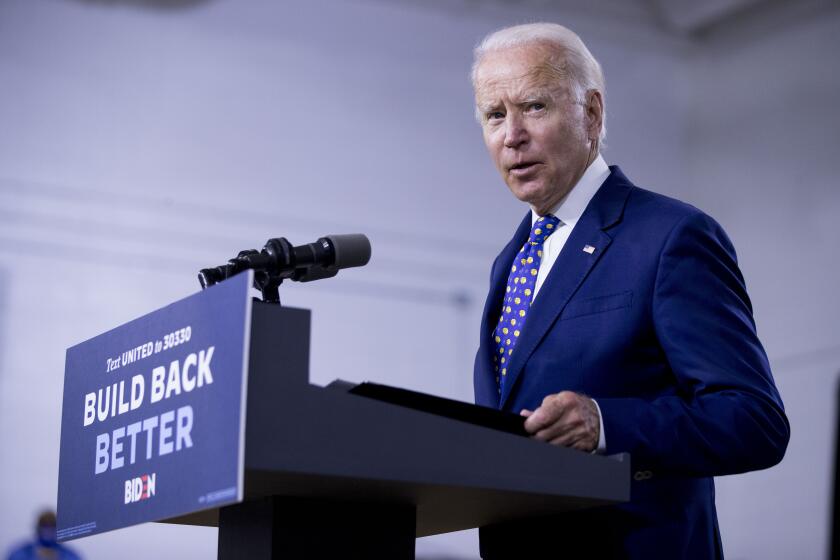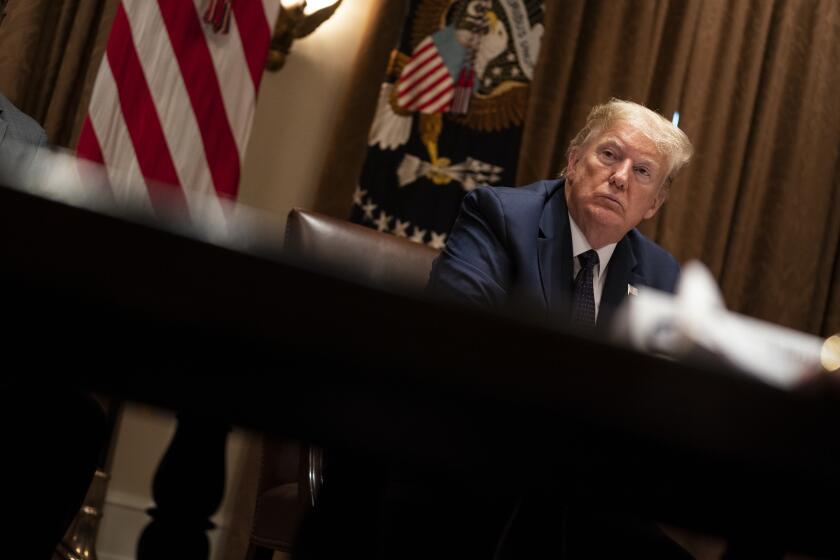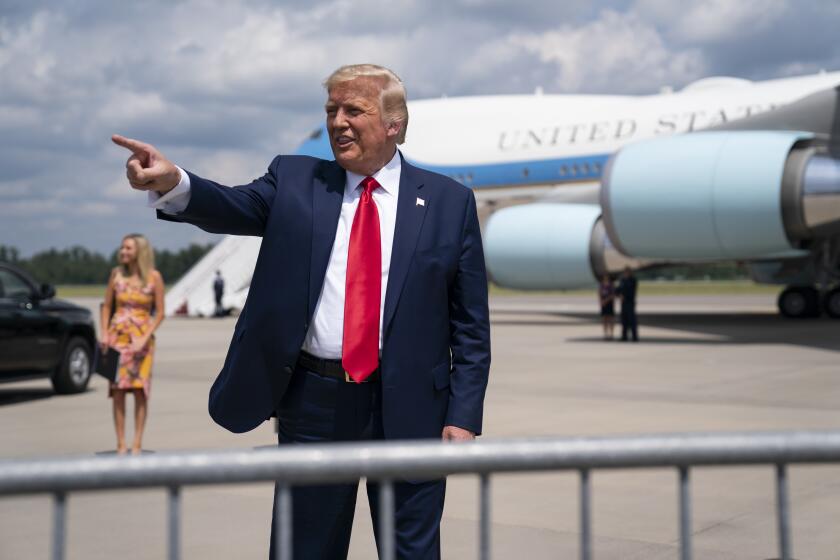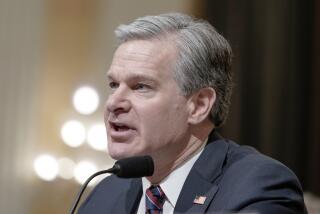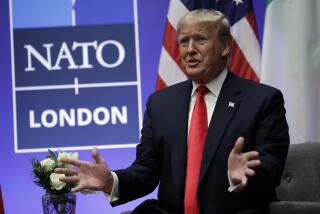Trump and Russia echo each other in presidential race
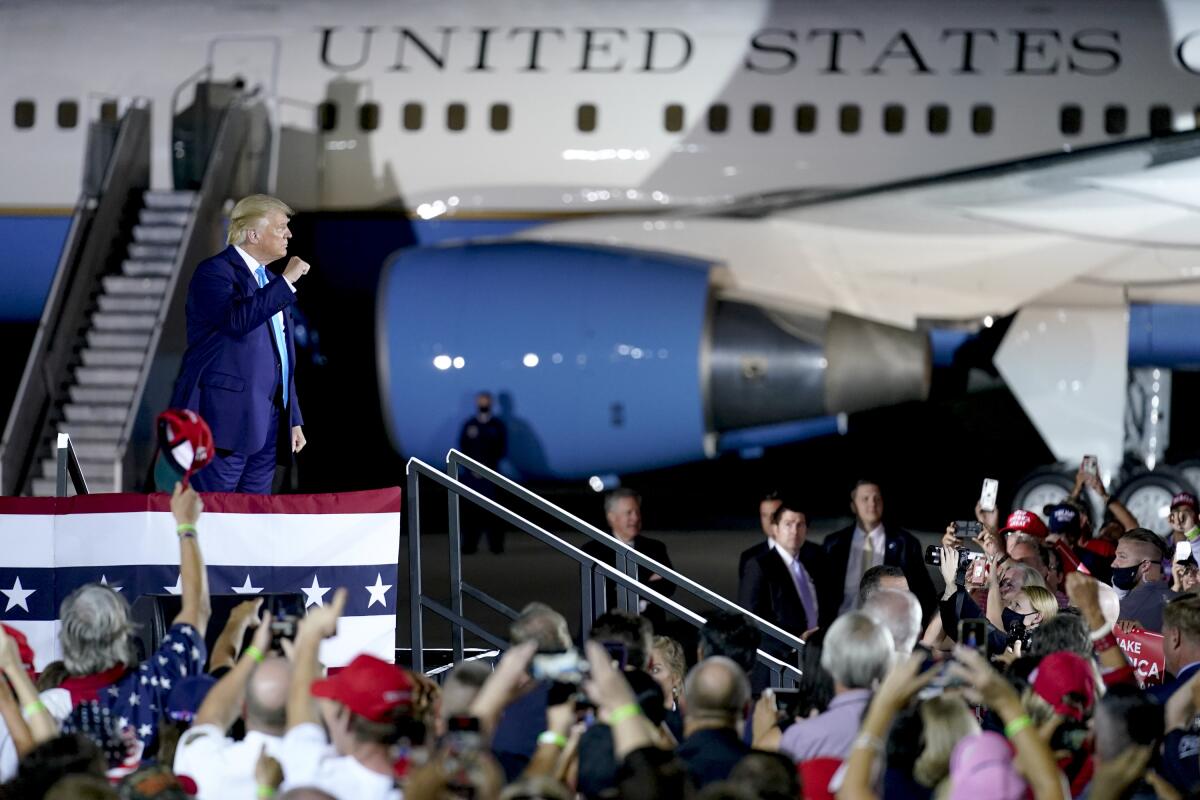
An hour into his rally Thursday night in a Pittsburgh suburb, President Trump slammed states that have expanded mail-in voting, a familiar target for his reelection campaign.
“These mail-in ballots are a disgrace, and they know it,” he scoffed.
But Trump isn’t alone in trying to undermine faith in absentee ballots. U.S. officials say a Russian disinformation campaign is pushing the same disruptive message to Americans four years after the Kremlin sought to help Trump win the White House.
A Homeland Security intelligence bulletin issued hours before Trump spoke in Latrobe, Pa., warned that a Moscow-backed operation involving state media and proxy websites had “denigrated vote-by-mail processes, alleging they lack transparency and procedural oversight, creating vast opportunities for voter fraud.”
U.S. officials say Russia’s operation includes false allegations that Democratic presidential nominee Joe Biden’s health is failing and that he acted improperly in Ukraine when he served as vice president. Trump has made the same allegations.
The overlap in messaging between Trump’s rhetoric and Russian disinformation in some ways echoes the symbiotic relationship between the president’s first White House bid and Russian intelligence services in the 2016 election.
In a preelection report, the director of national intelligence’s office says Russia is actively trying to denigrate Joe Biden, China “prefers” that President Trump loses reelection, and Iran is seeking to undermine U.S. democracy.
Special counsel Robert S. Mueller III spent nearly two years investigating those ties, ultimately concluding that Trump and his top aides welcomed Russia’s release of hacked Democratic Party emails but didn’t necessarily actively coordinate with Moscow.
Rep. Adam B. Schiff (D-Burbank), chair of the House Intelligence Committee, said Russian disinformation could accelerate if the Nov. 3 election is close and it takes days or longer to tabulate the results.
“You could imagine it being even more treacherous in the aftermath of the election as the ballots are being counted,” he said Friday in a telephone interview.
Schiff said Moscow’s election meddling “looks very much like it did” four years ago.
“The Russians have not been deterred,” he said. “If anything they have been incentivized by the president to keep agitating on his behalf.”
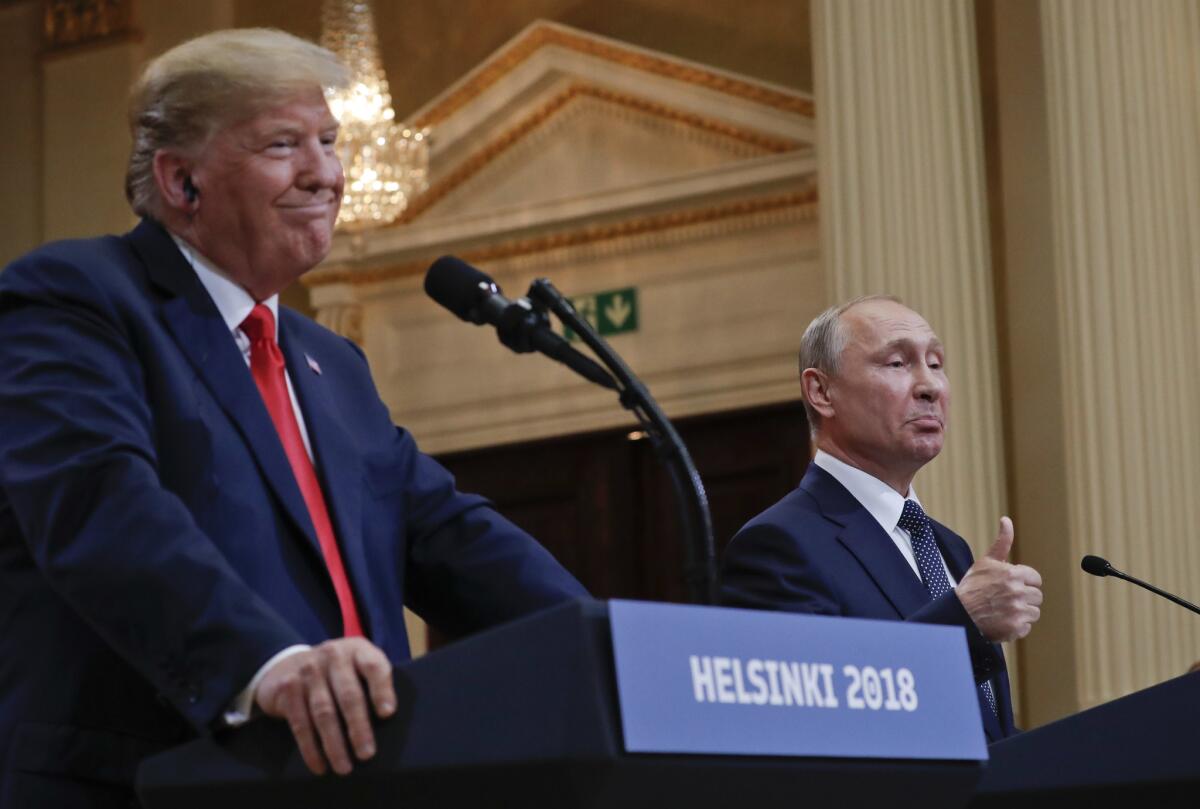
It doesn’t matter if Russia is piggybacking off Trump’s rhetoric, or if Trump is harnessing messaging that originates in Moscow, argued Marc Polymeropoulos, who retired from the CIA last year after overseeing clandestine operations in Europe and Russia.
The president is “a witting collaborator in a Russian disinformation campaign,” he said.
Trump and the Russian operation both seek to raise doubts about the integrity of U.S. mail-in ballots, for example.
In August, Russian state media and proxy websites falsely claimed that “ineligible voters could receive ballots due to out-of-date voter rolls, leaving a vast amount of ballots accounted for and vulnerable to tampering,” the Homeland Security intelligence bulletin noted.
Although the bulletin does not cite examples, Russia’s English language Sputnik website has also suggested mail-in ballots would lead to rampant fraud.
In recent days, Trump fired another inspector general, attacked a federal judge, demeaned a whistle-blower, and slammed reporters who check his facts and performance. Instead of presidential leadership during a crisis, critics saw a deliberate campaign of disinformation and distraction.
Trump went further in Latrobe, saying ballots were addressed to dogs.
“The lists are inaccurate and people are dead and dogs have gotten ballots — they have,” he said. “Dogs have gotten ballots and they know I’m right and everybody knows I’m right.”
There is no evidence of substantial fraud involving mail ballots. Trump and his wife vote by mail in Florida.
Robert C. O’Brien, the president’s national security advisor, did not answer directly at a White House news briefing Friday when asked whether Trump was amplifying Russian disinformation.
“It doesn’t matter what these countries want,” he said. “Any country that attempts to interfere with free and fair elections in the United States has to be stopped.”
Tim Murtaugh, a spokesman for Trump’s reelection effort, dismissed questions about Russian help. “President Trump will beat Joe Biden fair and square, and we don’t need or want any foreign interference,” he said.
After months of warning of a “rigged” election against him, President Trump now suggests his supporters vote by mail and then in person. Election officials say the practice would be illegal, and could lead to delays and disputes at polling places in November.
Facebook and Twitter have stepped up efforts to identify and take down false or proxy accounts used by foreign-influence operations. The two social media sites recently dismantled a network designed to promote stories from Peace Data, a faux-news website connected to the Internet Research Agency, a troll farm based in St. Petersburg.
Nina Jankowicz, who researches disinformation at the Wilson Center, a nonpartisan Washington think tank, said Trump’s constant stream of falsehoods and unproven allegations has weakened defenses against outside interference.
“He’s leaving us more vulnerable to Russian disinformation by floating these conspiracies from the highest office in the land,” she said.
Federal law bars foreign interference in a U.S. election. Paul S. Ryan, vice president at Common Cause, an advocacy group that seeks stricter enforcement of campaign finance laws, compared Trump’s treatment of the Russians to how a campaign would try to evade rules against coordinating with a super PAC.
“The candidate, simply in a public forum, announces what would be helpful in a campaign,” Ryan said. “And then they hear it, and they act on it.”
He added, “I think it’s outrageous that a candidate for public office in the United States would even contemplate, let alone act on, encouraging foreign interference in our elections.”
The Republican-led Senate Intelligence Committee recently released a report concluding that Trump’s campaign capitalized on Russian help in 2016.
“Staff on the Trump Campaign sought advance notice about WikiLeaks releases, created messaging strategies to promote and share the materials in anticipation of and following their release, and encouraged further leaks,” the report said.
The Trump campaign, the Senate committee added, was “indifferent to whether it and WikiLeaks were furthering a Russian election interference effort.”
For his part, Trump has downplayed or denied Moscow’s latest attempts to meddle in U.S. politics even as he acknowledged the growing concern by others.
“I hear it’s starting again,” he said in Latrobe. “Russia, Russia, Russia.”
More to Read
Get the L.A. Times Politics newsletter
Deeply reported insights into legislation, politics and policy from Sacramento, Washington and beyond. In your inbox three times per week.
You may occasionally receive promotional content from the Los Angeles Times.
